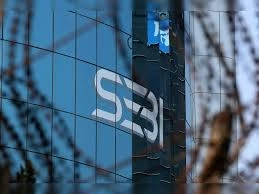The Securities and Exchange Board of India (Sebi) has initiated consultations with stock exchanges, brokers, and other market participants to review the framework for price discovery in initial public offerings (IPOs) and re-listed shares. The move follows controversy over Swan Defence’s re-listing earlier this year, which sparked concerns around fairness and transparency.
The Core Issue
At the centre of the debate is the use of “dummy price bands” during the special pre-open session (SPOS). Several investors argue that such mechanisms distort true price discovery. Sebi’s review is focused on whether structural reforms are needed to make the system more transparent, efficient, and investor-friendly, particularly for companies re-listed after insolvency resolution.
Key Proposals Under Discussion
- Revisiting Dummy Price Bands: Redesigning the system to allow greater participation in SPOS.
- Automation: Replacing manual coordination between exchanges with automated mechanisms for band relaxation.
- Cut-Off Rules: Reviewing the 9:35 am deadline after which no further relaxation is allowed.
- Base Price Setting: Considering alternatives to the current rule that uses the lower of book value and face value as the base price.
Background: The Swan Defence Case
The controversy arose when Swan Defence was re-listed on the NSE and BSE in January 2025. Exchanges imposed a dynamic band of –85% to +50%, leading to a discovered price of ₹35.99 on the BSE, far below its reported book value of ₹1,578.48 per share. The company alleged this wiped out shareholder wealth, violated Sebi’s 2012 circular prohibiting bands on re-listed shares, and sought annulment of trades executed that day.
Exchanges’ Stand
Exchanges defended their actions, stating that dummy bands have existed since 2012 to prevent erroneous trades and that the base price of ₹10 (face value) was consistent with rules. They also highlighted that bands were flexed up to 260% before final price discovery occurred.
Sebi’s Initial Observations
Preliminary findings suggest that while dummy filters help contain volatility, they may undermine genuine price discovery. In Swan Defence’s case, just 14 trades from eight unique orders determined the price, with nearly 90% of buy orders rejected for being outside the band. Since re-listing, the stock has consistently hit upper circuits, raising further doubts about whether the initial discovered price was fair.

